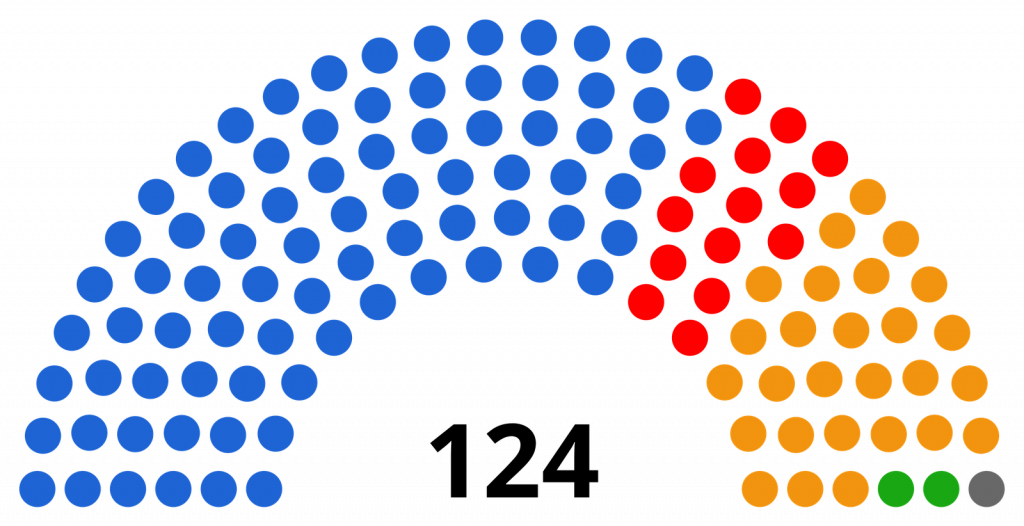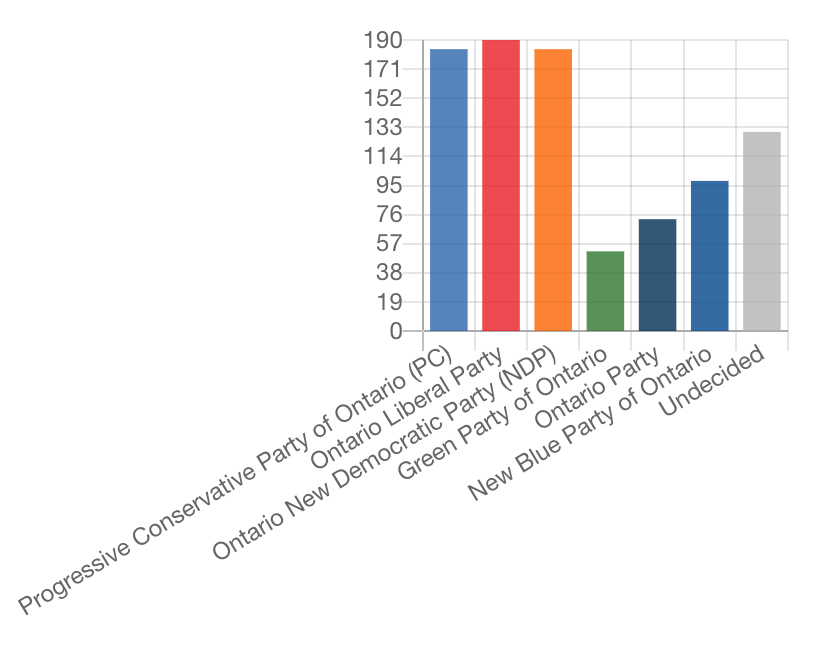A Reflection on Political Awareness and Decision-Making in Ontario Election 2025
Here is what our readers choices were
click: KnowYourVote’s informed voter’s questionnaire result for Ontario Election 2025
In a democratic society, informed decision-making is the cornerstone of a well-functioning electoral system. The Know Your Vote platform aimed to provide Ontarians with a clear understanding of where they align politically based on their answers to pressing provincial issues. However, the survey results highlight critical trends that merit further discussion—particularly the gap between perceived and actual voting behaviors.
Results
Questionnaire:
Official:

The Discrepancy Between Perception and Reality
One of the key takeaways from the survey was the disparity between individual responses and the final election outcome. While survey results indicated a fairly divided electorate among major political parties, the actual election results showed a Progressive Conservative majority. This suggests that while people may express diverse political preferences in a survey, their final voting decisions are influenced by other factors. Additionally, some voters may cast ballots without fully understanding which party aligns with their values, further complicating predictions.
Additionally, there is evidence that many voters may not be well-informed about the platforms of different parties. Some respondents acknowledged that they, or those around them, chose to vote for the Conservatives simply because they were expected to win. This raises concerns about political literacy and whether voters are making choices based on policy alignment or external influences such as media narratives and peer pressure.
Challenges in Survey Design and Voter Psychology
The survey also shed light on the psychological tendencies of voters when responding to political questionnaires:
- Primacy Effect in Responses – It seemed that respondents may have often selected one of the first options presented in multiple-choice questions. This suggests the need for randomization of answer orders to minimize bias.
- The Role of “Undecided” Voters – A significant proportion of respondents (37.65%) selected “Undecided / I don’t know enough about this issue”. This raises an important question: should voters be forced to make a choice in surveys? Many of these undecided voters eventually cast a ballot for a party, indicating that they do make a decision, albeit at a later stage. This suggests a potential limitation in capturing voter intentions accurately.
- The Weight of Key Issues – Not all political issues hold equal importance for voters. For instance, topics like the Israeli-Palestinian conflict or the 407 ETR toll debate may carry a significant weight for certain demographics, whereas other issues might be of lesser importance. A ranking system for key issues could help better reflect what truly influences voter decisions.
The Importance of Political Education
The findings from Know Your Vote reinforce the need for better civic education and policy awareness among the electorate. Many voters may not take the time to critically assess policy proposals, instead relying on preconceived notions, party branding, or peer influence. Platforms like this questionnaire provide valuable insight into public sentiment, but they also underscore the importance of educating citizens on political issues beyond election cycles.
At its core, Know Your Vote serves as a valuable tool for fostering political self-awareness. However, it also highlights the challenges of engaging an electorate where strategic voting, media influence, and information gaps play a significant role. Moving forward, refining these tools can contribute to a more informed and representative democracy.
The 2025 Ontario election has concluded.
Here is what our readers choices were



